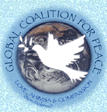 |
 |
 |
A NEW ECONOMIC PARADIGM FOR A CULTURE OF PEACE
 |
 |
 |
 |
 |
 |
|
By this term we mean the set of social political, religious, moral and legal commandments and rules to which a given society is committed. Social institutions are structured in such a way as to orient individuals toward the correct performance of the implications of these rules and to control and supervise this performance. The operation of these rules constitutes the surroundings within which individuals practice their economic activity. The rules themselves are derived from the conceptual framework of the community in relation to the Supreme Power, life, man, the world, creation and man's ultimate destiny. Here we will simply survey the main rules of the Islamic economic 'game' without going into the implications derived from them, which are outside the scope of this paper.
a. The whole universe, including man, belongs to Allah, Who has full and complete sovereignty on His creatures. Man is undoubtedly the highest order of being among those that Allah has created, and everything in the earth and the heavens is placed at man's disposal. He is authorized to use all this as a vicegerent or steward on behalf of Allah. Man is given the power to carry out this vicegerency and to extract as many benefits and utilities from these things as he can.
b. Allah has ordained such limits on man's behavior as will benefit the individual without sacrificing the rights of others. He has imposed certain obligations on human beings; their performance, prescribed by the Law of Allah is to be supervised by the community as a whole, on the basis of the Islamic rule that the rights which man owes to Allah in relation to social affairs are obligations on man towards the Muslim community.
c. All human beings are dependent on Allah. The more benevolent a person is to Allah's dependents the more beloved he is by Him. Everyone is personally responsible for the improvement of the community and the removal of its difficulties; this individual is ultimately responsible for any failure of the community's co-operative and collective effort.
d. The status of vicegerent or steward of Allah is general for all mankind: there is no specific privilege for any particular individual or nation as far as the vicegerency is concerned. This does not mean, however, that human beings necessarily are or should be equal in the benefits they extract from the universe. They are equal only in opportunity, and each one derives as much benefit as is within his capacity. Individuals are created with different capabilities so that they are instinctively disposed to live together, work together, and utilize each other's skills. But this does not imply or grant any superiority to the employer over the employee in relation to his worth as a human being or his status before the law. It is only incidental that at a particular time this is the employer and that is the employee. At another time the situation might be reversed and the ex-employer might become an employee, etc; the same thing can also be said about slave and master.
e. Individuals are equal in their human dignity. No differentiation can be made or claimed on the basis of color, race, nationality, religion, sex or age. Each individual's economic rights and duties correspond with his capabilities and the normative roles of each in the social structure. It is on this basis that some differences exist between adults on the one hand and the aged and growing on the other, or between male and female. Whenever such differences exist they affect both the rights and the obligations in such a way as to keep some sort of balance between them.
Islam does not consider the existence of socio-economic classes as contradictory to the general principle of equality as well as to the principle of brotherhood. Economic power is distinguished from political and social power partially because of the fact that the broad objectives as well as many details, are laid down in the Qur'an and the Sunnah, and by the constancy of the methods used by Muslims in legislating the non-specified details. In Islam work is considered a virtue and idleness a vice. In the modern Islamic literature one will find many details concerning this. The Qur'an addresses the Prophet, telling him: "... and say (to the Muslims): 'Work'." The Prophet is reported to have prohibited begging unless it is owing to starvation! The best worship is work, and work is at the same time both a right and a duty. It is the obligation of the society and its representative body to provide individuals with job opportunities. Manual labor is honored and the Prophet peace be with him, is reported to have kissed the hand of a laborer. Monasticism and asceticism are prohibited; the Prophet is reported as saying that those who provide food and other necessities to the one who spends all his time engaged in worship without attempting to earn a livelihood are better than him. Consequently, leading the prayer and giving the sermon in Islam is an unpaid voluntary job. The Prophet used to ask Allah to preserve him from disability and laziness among other things.
g. Life is a dynamic process toward improvement. The Islamic teachings look at human life in this world as a race with time. A man's lifetime is very limited and there are a great many improvements to be effected within this very limited span. Betterment and perfection are in themselves goals in this process. The Prophet, peace be on him, is reported to have ordered a grave digger to correct a superficial hole on a grave although it was only at the surface. He established the rule that "Allah likes the one who, when he does anything, does it in an excellent manner".
"No harm, no injury,"-this phrase was reportedly used by the Prophet, peace be on him. It refers to injuries consciously planned and inflicted by the individual, as well as to the mere presence of injury. The very fact of injury being inflicted upon any one is the focus of attention whether the injurer intended to inflict the injury or not. Injury is to be eliminated regardless of the intention behind it. But we must be realistic enough to note that complete elimination of 'injury' from human life is impossible. Injury in itself is always undesirable. Yet when it is a necessary condition to the achievement of something good and greater, it may be tolerated.
A minimum level of goodness is clearly defined. The performance of this level is controlled by social institutions, which ultimately impose it by the power of the law. It is not sufficient, in Islam's view, to count only on individual initiatives to perform, say acts of charity. As a matter of fact, a large part of what is left to voluntary charity in a non-Islamic society is supported by law in an Islamic society. The Muslim is urged by the ethical system of Islam to go beyond the minimum level in doing good. Obeying the Islamic teachings in all aspects is considered in Islam as a means of obtaining the pleasure of Allah.
These are the principles on the basis of which the market functions in an Islamic society. All prices, whether of the factors of production or of products, stem from this mechanism, and because of this are regarded as being just or fair prices. This may not agree with Siddiq's concept of 'just price' as based on the cost of production; hence, in this study, it is preferable to use the term 'the price of the equivalent' instead of the 'just price'. This makes our terminology more compatible with the traditions of Islamic jurisprudence and expresses the conceptual content of the term more satisfactorily. A detailed discussion of 'the theory of the price of equivalent' may be found in "The Economic Views of Ibn Taymiyah."
The second comment on the previous analysis is that the market mechanism in an Islamic society does not imply an atomistic structure. It is true that Islam precludes a coalition between suppliers and demanders, but it does not exclude the possibility of accumulation of wealth or concentration of production as long as no dishonest methods have been used in the process and they do not violate the principles of freedom and cooperation. However, in practice the existence of accumulation and/or concentration of wealth may call for government intervention. This intervention may either take the form of a government takeover of the monopolized production or governmental control and pricing.
The third and last point relates to the value theory. There is no split, in the Islamic economy, between the normative usefulness of a commodity and its economic value. In other words, what is forbidden for use has no economic value. Accordingly since wine has no value in an Islamic society, any existing supply must be gotten rid of, and any effort put into its production and distribution will be considered an absolute waste in economic terms.